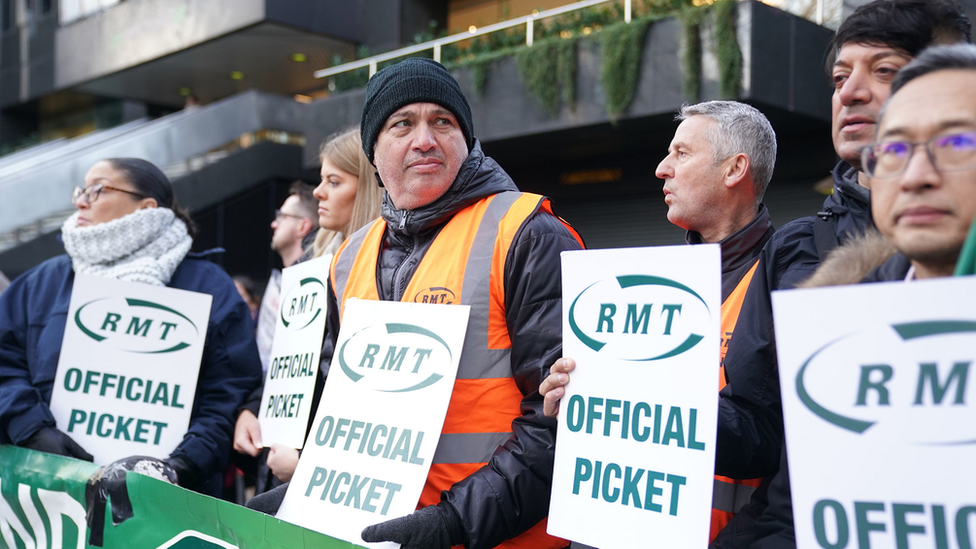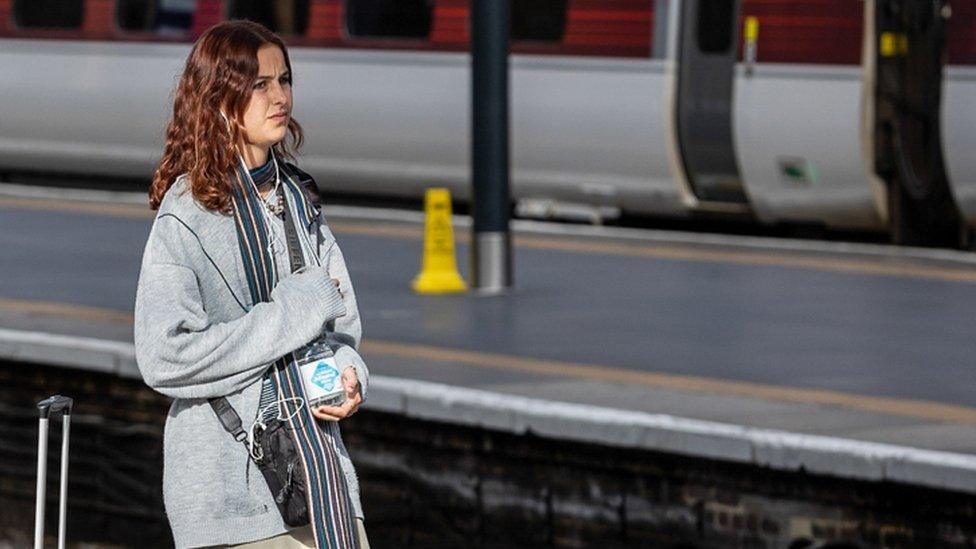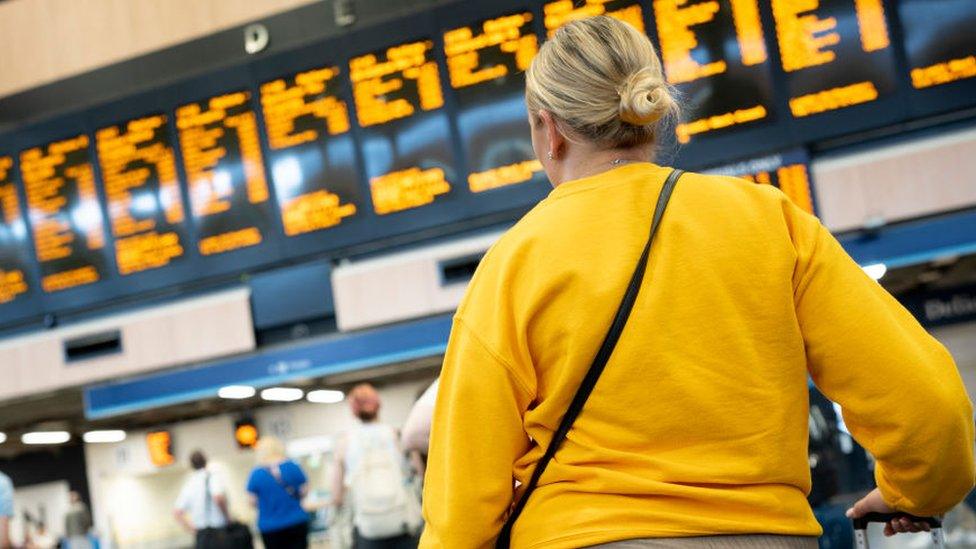Rail workers given fresh pay offer in dispute
- Published

Rail workers have been given a fresh pay offer by train companies in a bid to end long-running strike action.
The Rail Delivery Group (RDG) has made the new offer to the RMT union following talks over the past week.
The deal includes a backdated pay rise of 5%, up from a previous offer of 4% for 2022, and a 4% increase this year. But the deal depends on changes to working conditions.
The RMT said it was "considering" the matter.
RMT general secretary Mick Lynch said: "The national executive committee will be considering this matter and has made no decision on the proposals nor any of the elements within them.
"We will give an update on our next steps in due course," he said.
There have been 16 days of strike action since June involving RMT members working at both train companies and Network Rail, with Network Rail members additionally striking in a separate dispute between Christmas Eve and 27 December.
Train drivers in the RMT are also due to join members of the main drivers' union, Aslef, in strikes on 1 and 3 February.
The RDG - which represents the train operators - said its latest offer was its "best and final", and said as well as giving workers a pay rise, the deal would also "improve how the industry delivers services to passengers".
"If accepted, it would help recover the industry's finances post-Covid, reducing the burden on taxpayers at a time of significant pressure on public spending," the group said.
Steve Montgomery, chair of the RDG, said the offer was "fair" and "weighted particularly for those on lower incomes".
As well as a 9% pay rise over two years, the RDG said the deal also included staff being able to move between stations when there are shortages, as well as introducing part-time and flexible working.


The government, which ultimately holds the purse strings, has allowed the industry to put forward new proposals. As expected, there's a higher pay offer for 2022. It's now in line with the percentage rise offered to Network Rail employees.
There is still a long list of conditions attached - which would mean change.
To give just a couple of examples, staff would be committed to work Sundays if rostered on. And a new "multi-skilled" station role would be created.
The RMT continues to oppose the closure or re-purposing of ticket offices. But today's offer makes clear any changes to station staffing would be subject to local consultation.
The explicit requirement to expand driver-only operation - where drivers, not guards, operate train doors - is gone. However, the plans say individual companies could separately go on to propose changes to on-board staff roles.
The period of no compulsory redundancies has been extended.
There's now a wait to find out whether the RMT's executive committee believes these proposals are acceptable to members, or perhaps, if they will be given a vote.

On Wednesday, Rail Minister Huw Merriman conceded that the strikes have cost the UK more than settling the disputes months ago would have.
The walkouts have cost the UK more than £1bn, he told a committee of MPs.
The RDG said industrial action had cost the industry around £480m in lost ticket revenue since June.
It said this was on top of its current £2bn shortfall in cash following the easing of Covid restrictions.
"With staff losing up to £2,000 in pay while on strike, the Rail Delivery Group is urging the RMT leadership to put the offer to its membership for a vote, bring an end to the dispute and work together to start rebuilding the railway for the long-term," the group said.
The rail industry is not the only industry to strike in recent months, with many other workers, such as nurses, ambulance staff and civil servants also taking industrial action.
The rising cost of living has led to many workers asking for pay rises, with inflation - the rate at which prices rise - hitting 10.5% in December.
On Tuesday, Aslef, the train drivers' union, rejected an offer from train companies, which included a 4% pay rise for two years in a row.
Aslef said the proposal was "not and could not ever be acceptable", but its general secretary Mick Whelan said the union was open to further talks.
Related topics
- Published11 January 2023

- Published3 January 2023
